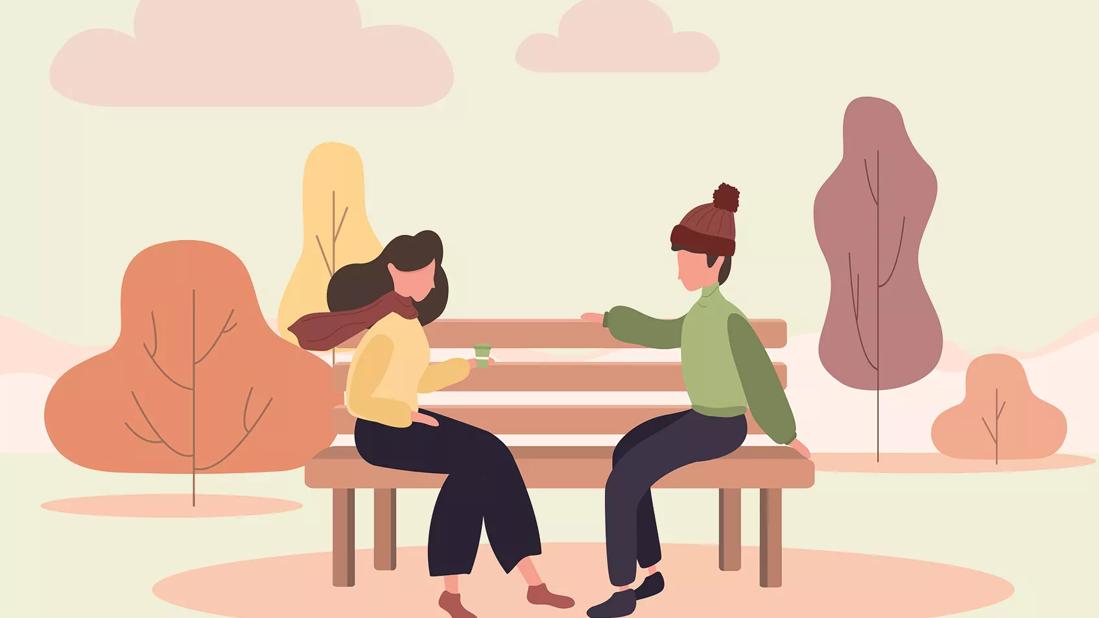Find out what it is and why it should be avoided

You love your name — or you’ve embraced a nickname that you like even more. Either way, your birth name or magnificent moniker means a lot to you. And when someone gets it wrong or insists on calling you something that’s quite cringeworthy, you might feel annoyed or disrespected.
Advertisement
Cleveland Clinic is a non-profit academic medical center. Advertising on our site helps support our mission. We do not endorse non-Cleveland Clinic products or services. Policy
A new name can represent a more affirming life for some transgender or gender nonconforming (someone who doesn’t follow gender stereotypes) people. It’s a fresh start and it gives them a way to finally live in their truth. But when people refuse to acknowledge a person’s new name or continue to use their old name, it can be quite invalidating or traumatic.
Child and adolescent psychiatrist Jason Lambrese, MD, explains why it’s important to respect people’s identities and what to do if you make a mistake.
Dr. Lambrese says deadnaming is referring to someone by a name that they didn’t ask you to use.
“A transgender person may decide to no longer use their birth or legal name. Instead, they’ll choose a name that better aligns with their identity. When someone uses their old name after being asked not to, that is what we call ‘deadnaming.’ The person who they once were is dead, but the new person is alive, so their current name should be used.”
It doesn’t always come from a malicious place. Sometimes, it takes time for a person to get used to referring to a friend or family member by a new name. Other people might do it intentionally.
“Sometimes, people are trying to catch up but they’re struggling. And some people are not trying to catch up at all. That’s an important distinction to make. For family members who have known somebody by one name for so many years, it’s challenging to switch that over immediately because our brains automatically associate a name and a pronoun with a person. So, we don’t have to think about what someone’s name is because it comes to us automatically.”
Advertisement
Dr. Lambrese says that making the switch can be even tougher for parents.
“To switch the name is a very conscious thing. Parents now have to stop and think, ‘OK, here’s the name that I now have to use. Here’s the pronoun I have to use.’ But that eventually will become more automatic with practice.”
It’s quite common to make mistakes. If you mess up, the best thing you can do is apologize and correct yourself.
“If you mess up, it’s OK. Apologize and change course. People really value the apology. You could say something like, ‘I know you asked me to use your preferred name. I’m so sorry. I’m going to be a lot better about it.’ Just own that you messed up and make it clear that it’s not the other person’s fault. Humility is key in all of this.”
While some of us might not give a second thought about getting someone’s name wrong, deadnaming could give a transgender person the impression that you don’t respect them. It can also be a very stressful and traumatic experience.
“It can remind them of that period in their lives before they could take steps to affirm who they are. Deadnaming might bring them back into those more negative times in their lives. And often, that gender dysphoria (distress that comes from one’s sex assigned at birth not lining up with their true gender identity) can be associated with depression and anxiety.”
One study took a look at a group of 129 transgender and gender-nonconforming youth. The study showed that when transgender youth can use their chosen name, they experience fewer symptoms of depression and less suicidal ideation and behavior. Also, having the ability to use their preferred name in multiple contexts affirms their gender identity and helps lower mental health risks.
Dr. Lambrese says that it helps when preferred names can be used in places that don’t require legal names. For instance, if badges must be worn, it’s better when someone can have their preferred name on theirs. This cuts down on any confusion. The same goes for email addresses. As for schools, it could be as simple as asking how a child wants to be addressed.
There’s always going to be that one person who “doesn’t get it” or refuses to be respectful. In these cases, it helps when we can be advocates for our friends or loved ones.
“It can be very uncomfortable for a transgender person to have to keep reminding people or explaining the importance of their name. So, if someone continues to use their deadname maliciously, it can be really valuable for anyone to step in and say, ‘Actually, this is the name that they use. We need to respect that. And if you can’t, then we need to end this conversation.’ But making sure that we’re using someone’s preferred name regularly so other people are seeing and hearing it can help set the tone.”
The weight of a deadname can be quite crushing. If you’ve had a terrible experience and it’s left you feeling anxious, overwhelmed or depressed, reach out. Surrounding yourself with people who love and support you or talking to a mental health professional can help ease the pain.
“Those positive connections will overtake negative ones. We often remember negative experiences, but those positive experiences are much stronger. Having those positive connections and using some coping skills can help people work through stress, anxiety or depression.”
Advertisement
Dr. Lambrese suggests trying the following in the moment:
When an incident like this happens to a kid, Dr. Lambrese encourages the young people that he works with to talk to a trusted adult. It’s great if that person is a parent, but they can also confide in a teacher, coach or leader who understands.
“Is there an aunt or uncle who’s been supportive? Maybe there’s a teacher at school, a coach or the drama club leader who they can talk to and say, ‘Here’s what I’m going through. This has been very hard for me.’ Having someone at school or other group activities who can be their advocate is truly meaningful.”
Advertisement
Learn more about our editorial process.
Advertisement

Find out how they’re making life a little easier for gender-diverse kids

Most recommended precautions center around minimizing bruising or swelling

Even one drink can have an impact on your cognitive function leading to slurred speech, blurred vision and impaired memory

Understand who may (and may not) benefit

Lorem ipsum dolor sit amet. Et odio Quis vel ipsam omnis eum alias deleniti et placeat impedit non voluptas galisum hic autem enim et cupiditate aliquid. Est beatae quidem non facilis autem ut commodi nisi aut tempore rerum et dolores voluptatem cum enim optio id sapiente quasi. Ad laboriosam officiis 33 cupiditate sequi ea voluptatum consectetur qui necessitatibus voluptate et quasi doloremque et facere explicabo quo explicabo officia

Seeking help through therapy can be an important step in improving your quality of life when you have UC

Type 2 diabetes isn’t inevitable with these dietary changes

Applying a hot or cold compress can help with pain